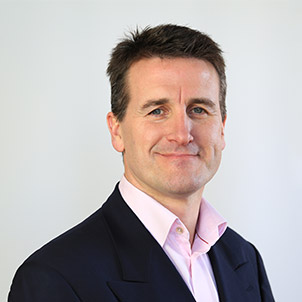Related Articles
High-performance teams should embrace conflict – not shy away from it.
In many organisations, the rush to implement wide-ranging teamwork is misguided and, as many have found out, not particularly successful.
THE WORLD OF business education has borrowed many paradigms from the world of sports, with the whole area of teamwork being especially prominent.
But while as business people we can learn a lot from sports teams, we also need to be very careful in superficially applying learnings from one sphere into another.
In many organisations, the rush to implement wide-ranging teamwork is misguided and, as many have found out, not particularly successful. Part of the reason is that many people confuse teams with groups. A team is a collection of individuals who work interdependently – that is, their individual and collective success relies on each other, like the Irish rugby team.
A group is a collection of individuals whose individual success does not rely on the efforts of their colleagues, but whose collective success may – like the Ryder Cup ‘team’.
The need to share knowledge or occasionally support or cover for a colleague does not create the need for a team.
This may seem like an overemphasised distinction, but it is very important. Creating teams of any sort, but especially high-performance ones, is hard work. It takes time, resources and perseverance.
There will absolutely be an investment required to make it happen. The critical question is whether the work of the collective is so interdependent that the potential dividend outweighs the investment required.
 Uncomfortable places
Uncomfortable places
Promoting teamwork can produce many useful benefits in terms of collective decision-making, generating consensus, creating a sense of shared responsibility and accountability, and importantly a feeling of being part of a supporting ‘tribe’.
However, normal teams tend to be missing the two vital ingredients that distinguish them from genuine high-performance teams – shared, high-performance norms and the ability to embrace conflict.
Unfortunately, the addition of these two ingredients tends to make high-performance teams difficult (or at least uncomfortable) places to be, for most of the time.

Genuine high-performance teams have exacting performance norms. Most collections of humans will find a performance level that is relatively comfortable for the group, somewhere slightly higher than the average, but not by much.
This produces a mediocre performance level that is anathema to high-performance teams. These teams are made up of high-performance individuals who demand high performance from themselves and others, and who are extremely intolerant of poor performance from their peers.
They are difficult individuals, especially when not under performance pressure. As team-working researcher Mark de Rond says, “What makes them great makes them difficult.”
This means that the role of the team leader is vital, in that he or she will have to manage the collateral damage that these people can create when not in ‘performance’ mode (be ready for your ‘Saipan moment’!).
The second feature we find in high-performance teams is the ability to embrace conflict. In many teams conflict is avoided for the sake of group harmony.
Embrace conflict
Unfortunately, avoiding conflict does not address the cause of conflict and we often find the problem of ‘unfinished business’ hampering the performance of teams. In high-performance teams, conflict is embraced, even created, to ensure that ideas are robustly challenged, for example by playing ‘devil’s advocate’ in meetings.
The members of the team will come with diverse and differing opinions and perspectives and will bring a healthy level of challenge and debate to every issue. The goal of the team is to produce an optimal answer, not to reach consensus.
Too often Irish teams suffer from a terminal politeness problem, where we avoid constructive conflict for fear that it might turn destructive. This results in false harmony and sub-optimal performance.
The prescription for creating a high-performance team is cognitively simple but behaviourally complex – that is, easy to say, hard to do. Stop looking for good ‘team players’ and look instead for high-performance individuals.
Be prepared that a high-performance culture will be an uncompromising and at times uncomfortable place to be. Ensure that conflict is not closed down or avoided, but instead dealt with in an open and transparent way.
Dr Colm Foster is director of executive education at the Irish Management Institute. He will be a keynote speaker at Bord Gáis Energy’s half-day conference, Leadership: Building a Winning Team on 11 May in Galway.




